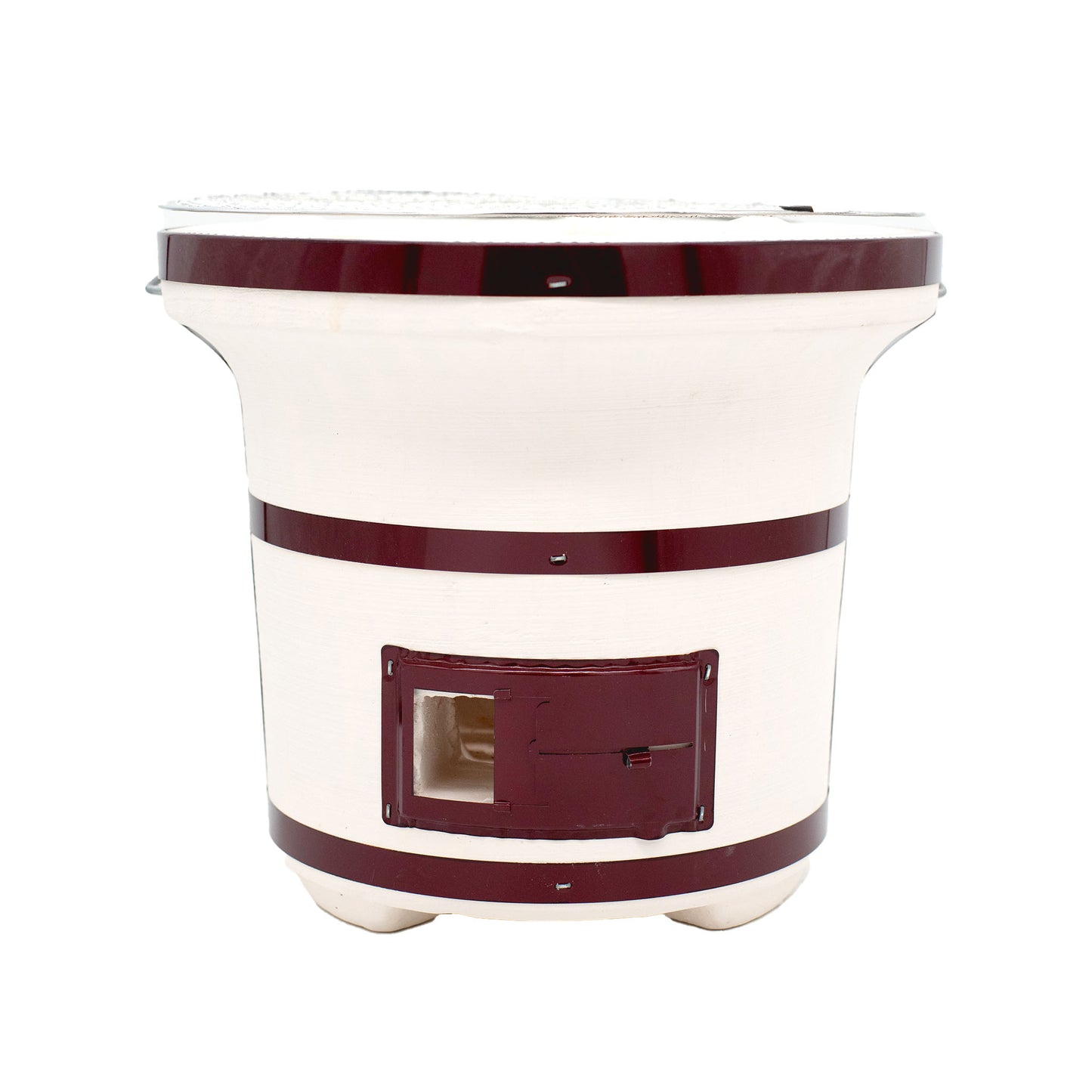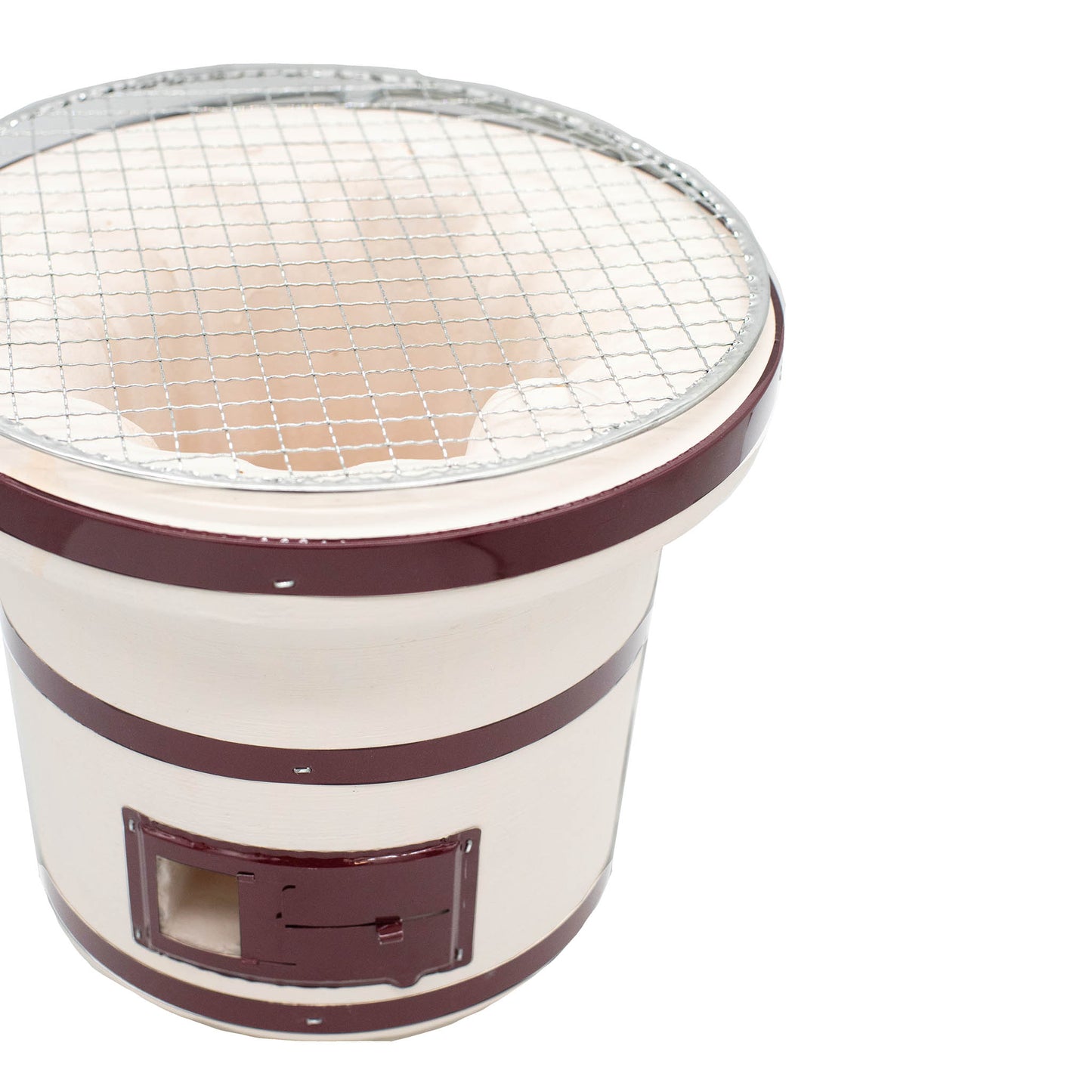The Shichirin Table Barbecue is a genuine traditional Japanese charcoal grill made of a porous clay called Keisodo. This clay, formed by ancient algae accumulating at the bottom of the ocean, has around 40,000 small holes per micron. This gives the Shichirin extraordinary heat retention power, making it possible to cook with very little heat.
At a 26 x 21.5cm size, this charcoal barbecue is slightly smaller than the other one we stock and is suitable for use on the floor or at the table for diners to grill their own meat, fish or vegetables. Made from diatomaceous earth, the thermal insulation is exceptional - food is cooked quickly without extreme heat, helping capture and preserve flavours.
A traditional Japanese charcoal grill.
Shichirin grills have been used since the Edo period, when they were first used as room heaters. Shichirin is a compound word that means 'seven rin', referring to the currency of the Edo period. It is said that the shichirin was an affordable way to cook a meal, because the amount of charcoal needed for each lighting only cost seven rin. They are also referred to as a Hibachi grill, which translates as 'bowl of wire'.
Includes: Barbecue, stainless steel grill and wooden stand.
Why use Binchotan charcoal?
Binchotan charcoal is essential for this Konro grill to get the best cooking results. We do not recommend using poor-quality charcoal in this grill, because a lot of smoke will be produced.
Binchotan charcoal, sometimes called white charcoal, is a traditional Japanese charcoal made from hardwood - usually Japanese oak wood - that has been burned at a high temperature for many hours. It burns cleanly for a very long time, with little smoke and no flames. This means food cooked over Binchotan coals will not smell burnt, retaining its natural flavour and moisture.
Binchotan briquettes offer an excellent alternative to traditional Binchotan at a lower cost. These briquettes are made by densely compressing oak sawdust, which is then burned in traditional Binchotan kilns.
Because of its density, Binchotan charcoal can be a little difficult to light - see guide in How To Use section above.



